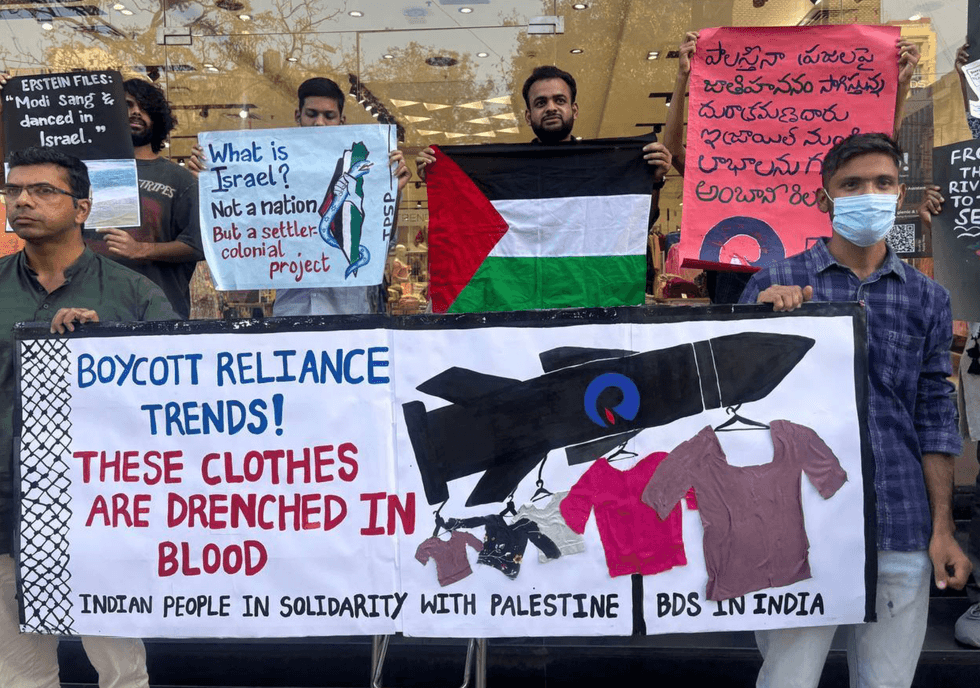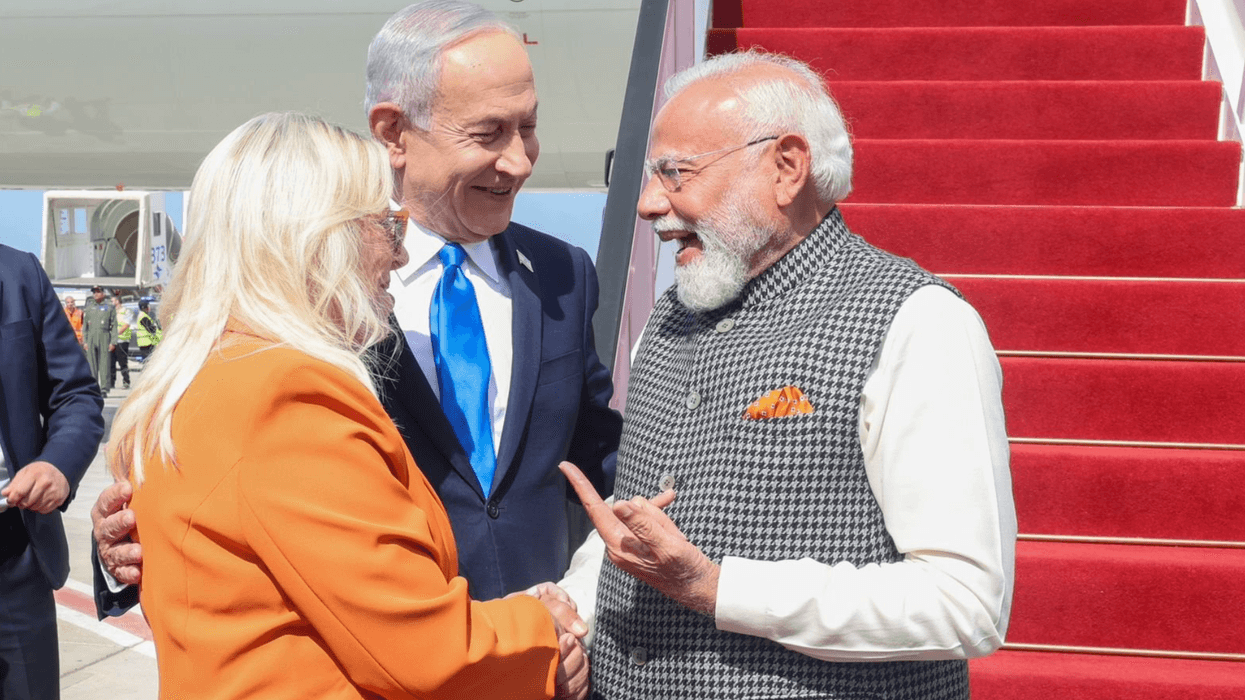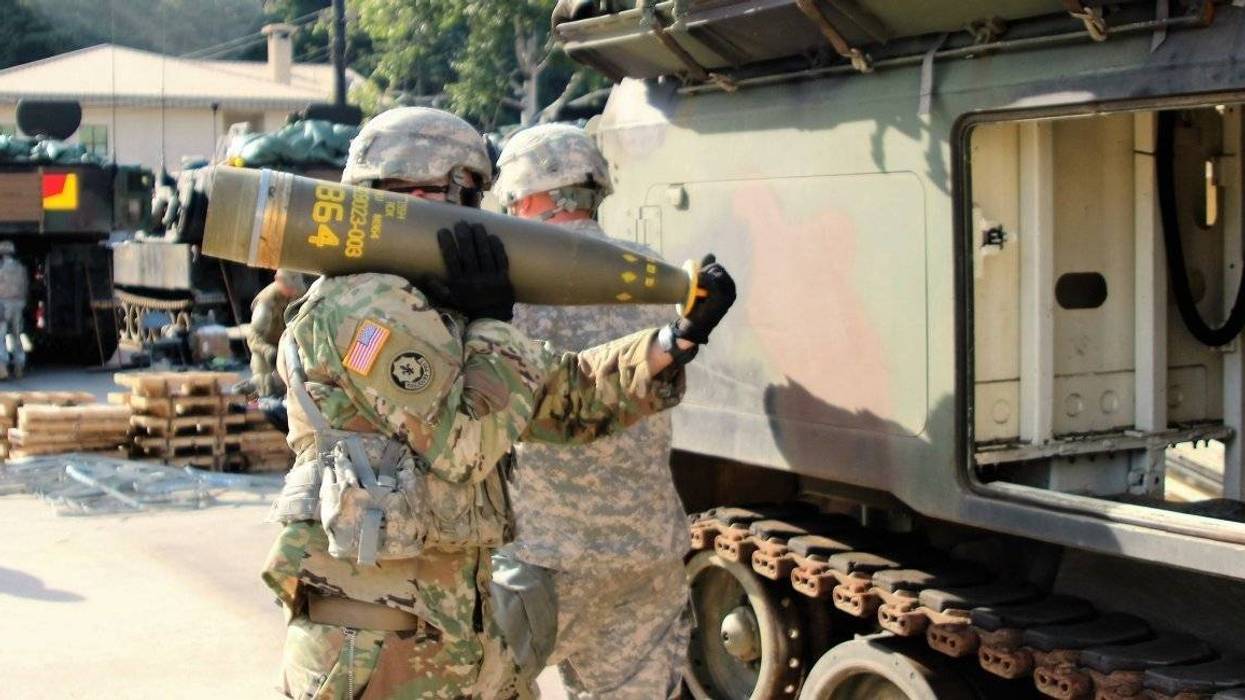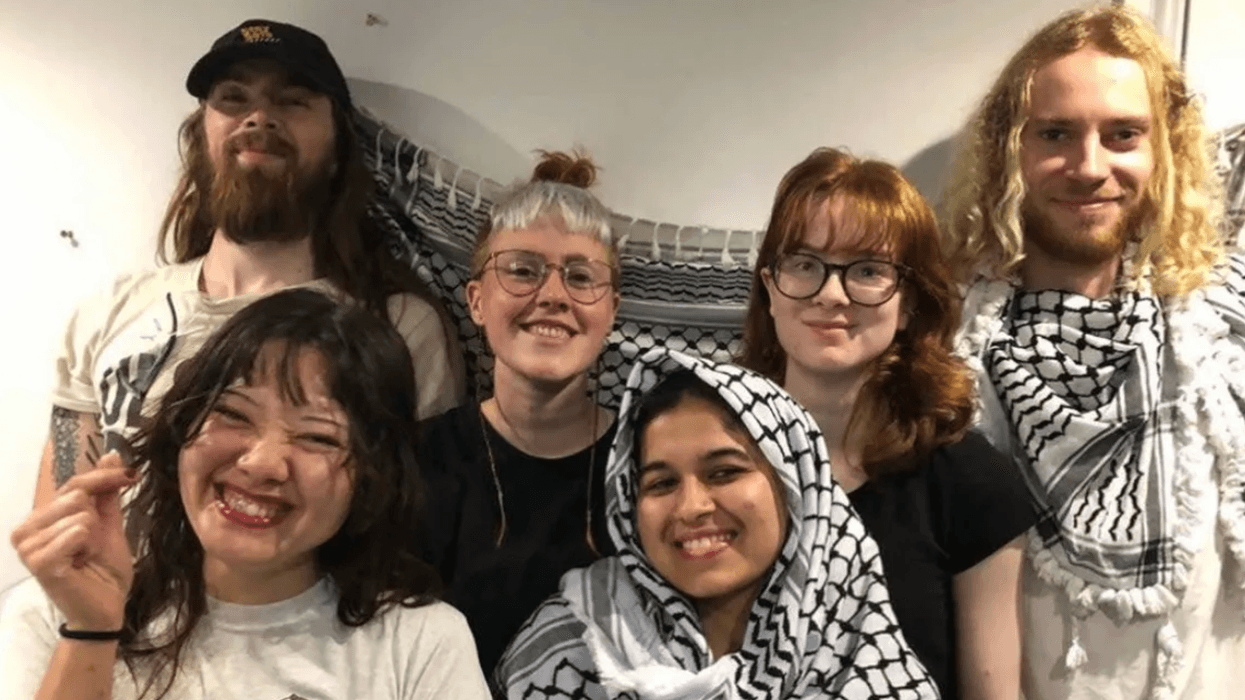'Disgraceful Act of Complicity': Indian Left Denounces Modi's Israel Visit
"Modi's embrace of Zionist Israel amidst its relentless genocidal assault on Palestine is a betrayal of India's anti-colonial legacy," said one leftist leader.
Indian Prime Minister Narendra Modi's arrival in Israel on Wednesday sparked widespread condemnation among his country's leftists, many of whom accused the Hindu nationalist leader of complicity in Israel's annihilation of Gaza.
Modi was warmly welcomed at Ben-Gurion International Airport by Israeli Prime Minister Benjamin Netanyahu and his wife Sara to kick off a two-day state visit that is expected to focus on issues including military cooperation and arms sales, as Indian purchases of Israeli weaponry have increased exponentially in recent years.
The Indian leader was also joyously greeted at his place of accommodation, the King David Hotel, where in 1946 Jewish militants seeking independence from British occupation carried out a bombing that killed 91 people, including at least 15 Jews.
Modi addressed the Israeli Knesset, or Parliament, lamenting the Hamas-led attack of October 7, 2023 in which 1,195 Israelis and others were killed and 251 abducted. But he said nothing about the more than 250,000 Palestinians killed or wounded by Israel's genocidal retaliation.
He did say that "no cause can justify the murder of civilians." But he was talking about Israeli, not Palestinian, civilians.
"Modi endorsed the brutal killing of 71,000 innocent Palestinians from reckless Israeli bombing," Calcutta-based journalist Seema Sengupta said on social media in response to the Knesset speech. "The death on both sides should've been mourned by him. Instead, he sounded like a partisan leader of a party which gained prominence through disharmony, violence, and bloodshed."
The Communist Party of India-Marxist (CPI-M)—which leads the ruling Left Democratic Front that currently heads the Kerala state government—said it "strongly opposes" Modi's visit, which it called "a betrayal of the Palestinian cause" that "legitimizes the murderous Netanyahu regime."
"The visit comes at a juncture when Israel has been waging a genocidal war in Gaza," the party continued. "Despite a ceasefire, there are daily violations by Israel which conducts strikes killing scores of Palestinians. In the occupied West Bank, there are stepped up attacks on Palestinians and a spurt in illegal settlements."
"The declared intent of the visit is also to deepen strategic, military, and economic ties with a Zionist expansionist regime which seeks to dominate the region with the help of the United States," CPI-M added. "The visit is all the more inopportune because it is taking place at a time when the United States is preparing to attack Iran militarily at the instigation of Israel."
CPI-M General Secretary M A Baby said that "Modi's embrace of Zionist Israel amidst its relentless genocidal assault on Palestine is a betrayal of India's anti-colonial legacy."
The Communist Party of India (Marxist-Leninist) Liberation, whose stronghold is in the eastern state of Bihar, said that it "condemns Prime Minister Narendra Modi’s visit to Israel as a disgraceful act of complicity in the ongoing genocidal assault on the Palestinian people."
"At a time when Palestinian civilians are being massacred, displaced, and starved under a brutal Israeli occupation, this visit amounts to political endorsement and profiteering on Palestinian blood," CPI (ML) Liberation continued. "After mortgaging India’s sovereignty and strategic autonomy to [US President Donald] Trump's racist agenda, Modi is now completely surrendering India’s historic legacy of anti-colonialism and solidarity with the oppressed by visiting Israel."
"Since assuming office in 2014, the Modi regime has systematically imported Israeli models of repression to consolidate its own politics of hate at home," the party added. "From bulldozer demolitions and collective punishment tactics against minorities and marginalized, to the expansion of illegal surveillance infrastructures, the [Bharatiya Janata Party]’s fascist politics has found a role model in Israel."
Israel and India have deepened ties since Modi and the BJP were elected over a decade ago. Both Modi and Netanyahu are right-wing nationalists who utilize religious supremacism to exclude or marginalize Muslims, and both have been accused of increasing authoritarianism, just like their common ally Trump.
Center-leftists including members of the opposition Indian National Congress—which has been criticized for its "pragmatic" engagement with Israel—also condemned Modi's visit.
Left-leaning members of Indian civil society and academia also decried the visit.
Rebuffing Modi's claim that this week's shirtless anti-BJP demonstrations by members of the Indian Youth Congress were an embarrassment for the nation, Delhi School of Economics professor Nandini Sundar said on social media that visiting "genocide-committing Israel has embarrassed and shamed Indians more than a 1,000 shirtless protests."
The activist group Indian People in Solidarity With Palestine and the India chapter of the Boycott, Divestment, and Sanctions (BDS) movement issued a joint statement accusing the "fascist BJP government" of working "hands-in-gloves with genocidal Israel" to "suppress voices of dissent while maintaining a facade of being democratic."

“At a time when the ceasefire is being used as an excuse to bomb and vaporize Palestinians and occupy Gaza," the groups said, "the Indian government is choosing to stand with genocidal Israel and its imperialist masters like America and is working overtime to benefit the corporations from the occupation of Palestine."
Update: This article has been updated with additional remarks from Modi.


